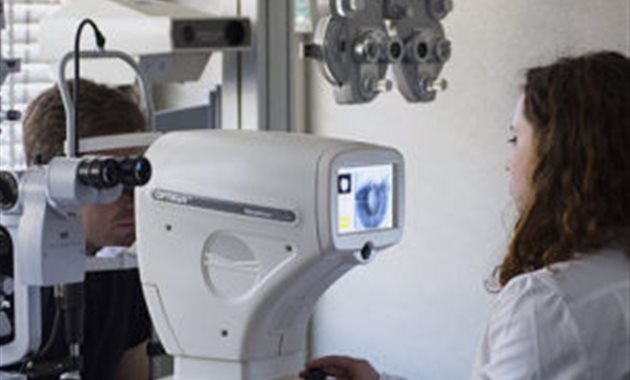The Optometry courses of the Zaccagnini Institute are aimed at qualified Opticians and vision professionals who wish to make a quantum leap in the practice of their profession and be able to deal with all vision-related problems and improve the eyesight and general well-being of ametropic subjects. These courses have been designed to provide the scientific knowledge and clinical skills required to practice as an Optometrist.
Postgraduate Courses in Optometry are available:
Admission to the course is open to a limited number of students.
Postgraduate Courses in Optometry are available:
- in the annual full-time version at the Bologna and Milano sites;
- in the two-year student-worker version, which allows opticians working in other provinces or regions to attend. The two-year course is available both at the Bologna and the Milan campuses
- The curriculum of the specialization courses in Optometry at the Zaccagnini Institute is the most comprehensive in Italy in terms of programs, disciplines and practical exercises.
Admission to the course is open to a limited number of students.
The Optometry courses of the Zaccagnini Institute are aimed at qualified Opticians and vision professionals who wish to make a quantum leap in the practice of their profession and be able to deal with all vision-related problems and improve the eyesight and general well-being of ametropic subjects. These courses have been designed to provide the scientific knowledge and clinical skills required to practice as an Optometrist.
Postgraduate Courses in Optometry are available:
Admission to the course is open to a limited number of students.
Postgraduate Courses in Optometry are available:
- in the annual full-time version at the Bologna and Milano sites;
- in the two-year student-worker version, which allows opticians working in other provinces or regions to attend. The two-year course is available both at the Bologna and the Milan campuses
- The curriculum of the specialization courses in Optometry at the Zaccagnini Institute is the most comprehensive in Italy in terms of programs, disciplines and practical exercises.
Admission to the course is open to a limited number of students.
The Optometry courses of the Zaccagnini Institute are aimed at qualified Opticians and vision professionals who wish to make a quantum leap in the practice of their profession and be able to deal with all vision-related problems and improve the eyesight and general well-being of ametropic subjects. These courses have been designed to provide the scientific knowledge and clinical skills required to practice as an Optometrist.
Postgraduate Courses in Optometry are available:
Admission to the course is open to a limited number of students.
Postgraduate Courses in Optometry are available:
- in the annual full-time version at the Bologna and Milano sites;
- in the two-year student-worker version, which allows opticians working in other provinces or regions to attend. The two-year course is available both at the Bologna and the Milan campuses
- The curriculum of the specialization courses in Optometry at the Zaccagnini Institute is the most comprehensive in Italy in terms of programs, disciplines and practical exercises.
Admission to the course is open to a limited number of students.
The Optometry courses of the Zaccagnini Institute are aimed at qualified Opticians and vision professionals who wish to make a quantum leap in the practice of their profession and be able to deal with all vision-related problems and improve the eyesight and general well-being of ametropic subjects. These courses have been designed to provide the scientific knowledge and clinical skills required to practice as an Optometrist.
Postgraduate Courses in Optometry are available:
Admission to the course is open to a limited number of students.
Postgraduate Courses in Optometry are available:
- in the annual full-time version at the Bologna and Milano sites;
- in the two-year student-worker version, which allows opticians working in other provinces or regions to attend. The two-year course is available both at the Bologna and the Milan campuses
- The curriculum of the specialization courses in Optometry at the Zaccagnini Institute is the most comprehensive in Italy in terms of programs, disciplines and practical exercises.
Admission to the course is open to a limited number of students.
Students have six years to complete the one-year full-time course and seven years to complete the two-year student worker course. During this period, and without any additional charge, they are full students and are therefore eligible to attend:
- Lectures, practical exercises and all teaching activities;
- Examinations;
- School services and supports.


